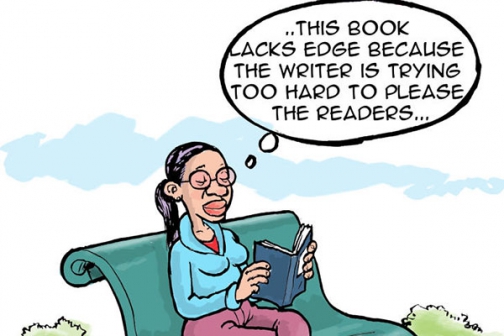×
The Standard e-Paper
Join Thousands Daily

Last week, I attended a workshop that discussed publishing of non-fiction prose narrative. So many possibilities came up – non-fiction is becoming quite popular.
Thereafter, I joined poetry lovers at the launch of Parliament of Owl, a wonderful poetry book, at the Goethe-Institut. At the launch, I ruminated over a question, which had inconspicuously emerged at the workshop about how we should treat readers of creative works.